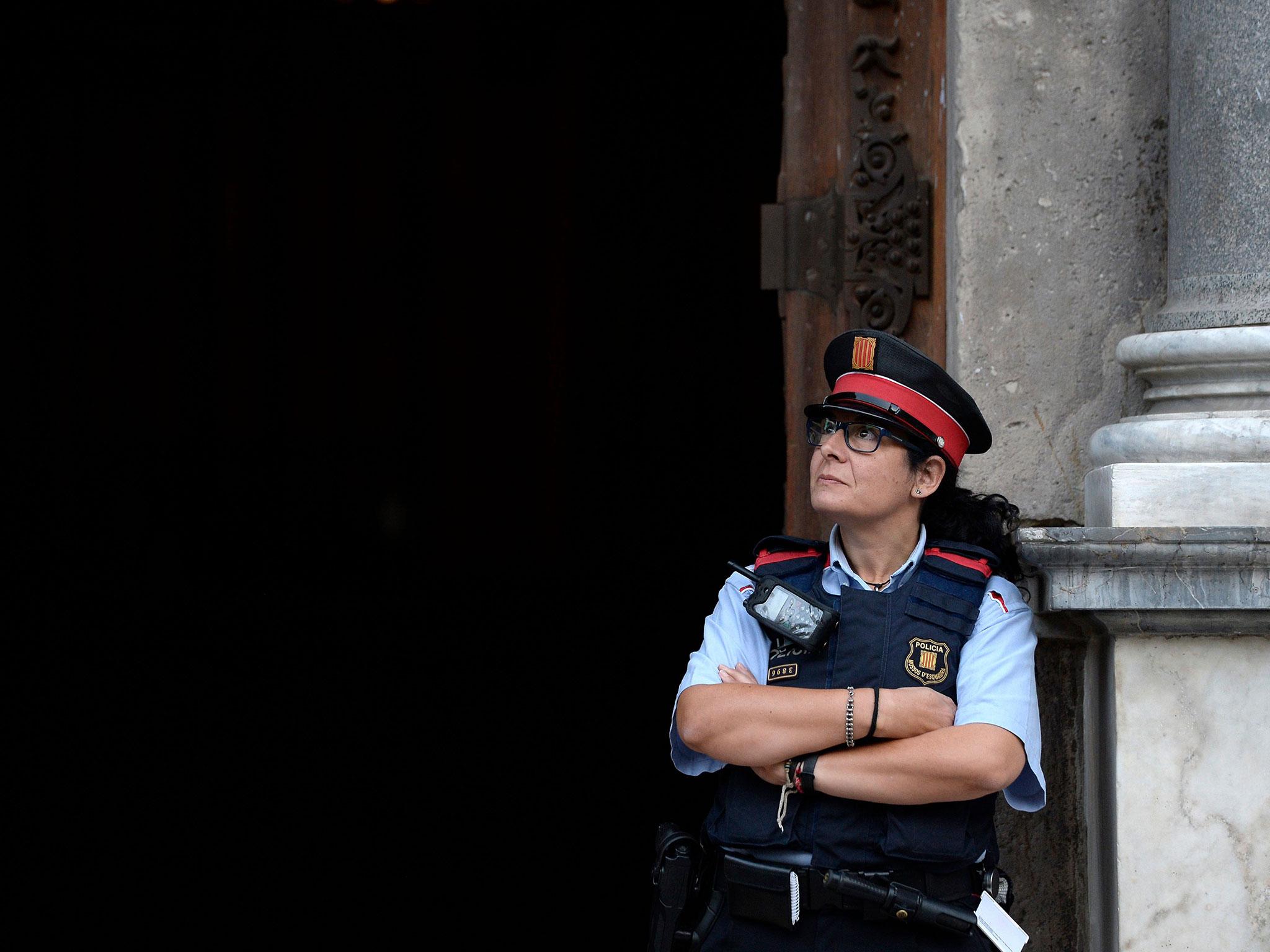Catalonia: Why Spain's government will be delighted with day one of the 'independent Catalan Republic'
'There are no incidents – it's magnificent news.' On a crucial day for judging the resilience of the Catalan independence movement, most just stayed away

As the international media spotlight on Catalonia swung to Carles Puigdemont’s unheralded journey to Belgium, for much of today the most popular image of the widely predicted civil resistance to direct rule in the region boiled down to this: one Twitter photo of one besuited former regional minister, Josep Rull, sitting at his desk at 9.30am sharp, working away on his computer.
“In my office, carrying out the duties the Catalan people have entrusted us to do,” ran the somewhat smug caption below the picture of Mr Rull, the former minister for territory and sustainability, who had insisted on Friday he would go to work today as a minister for the new Catalan Republic.
As the morning drew on, however – and this on a day considered crucial by Madrid in estimating the degree of popular opposition to direct rule – the embarrassing lack of other sacked regional ministers following Mr Rull’s example grew painfully obvious.
So, too, was the near absence of grassroots support outside Mr Rull’s government building, an anonymous concrete-and-glass high rise affair sited – in an ominous coincidence – just a mere stone’s throw away from the high, grimy walls and watchtowers of the now closed Modelo jail, where General Franco’s regime kept many Catalan political prisoners.
Outside Mr Rull’s building two Catalan policemen stood on one side of a broad boulevard, visibly bored as they watched the six or so, equally bored, local journalists on watch for any developments. A dozen or so pro-independence supporters briefly made an appearance before disappearing again, and the only Catalan flag visible outside the building was the one engraved in its smart glass front door.
At mid-morning at Mr Puigdemont’s party offices in the city centre, a similarly low-key story played out: dozens of TV camera crews waiting outside, but two young men clutching a Spanish flag represented the only protesters either for or against independence.
“We’re just here by chance, we were out shopping,” one of them, Pau, explained to The Independent, “but we feel it’s right the Catalan government should go on trial, they have to respect the law.”
For the Spanish government, this apparent near-absence of protests or resistance meant their low-key approach to taking over the running of Catalonia, at least initially, seems to be proving singularly effective. “There are no incidents,” one government minister, Iñigo de la Serna, claimed this afternoon. “It’s magnificent news.”
Meanwhile, official portraits of Mr Puigdemont were removed from government buildings in Tarragona, one regional capital and in police stations, and former councillors were left bereft of official cars and police escorts. Although one nationalist grassroots association has issued detailed instructions to Catalonia’s 200,000 civil servants on passive resistance tactics, and one human chain of several hundred people did form around a government building in Girona, a nationalist stronghold, on Monday morning, any outbreaks of resistance were quickly overshadowed by Mr Puigdemont’s abrupt departure from Catalonia.
Early in the day, government sources told local media they were untroubled by his absence, given that meant that “for today at least” he was not attempting to go to work as usual.
Catalan pro-unity demonstration – in pictures
Show all 6And while preaching civil disobedience, it was notable that the two biggest nationalist parties pitched much of today’s narrative towards explaining why they will be participating in the upcoming regional elections on 21 December. This despite it being held under the auspices of the much-reviled Article 155 of the constitution.
And as for Mr Rull? He left after 40 minutes “work” – for a party meeting. Whether he will return tomorrow, and whether civil resistance will begin to flourish in earnest, remains to be seen. The Spanish government, meanwhile, is surely breathing a huge sigh of relief.
Subscribe to Independent Premium to bookmark this article
Want to bookmark your favourite articles and stories to read or reference later? Start your Independent Premium subscription today.

Join our commenting forum
Join thought-provoking conversations, follow other Independent readers and see their replies